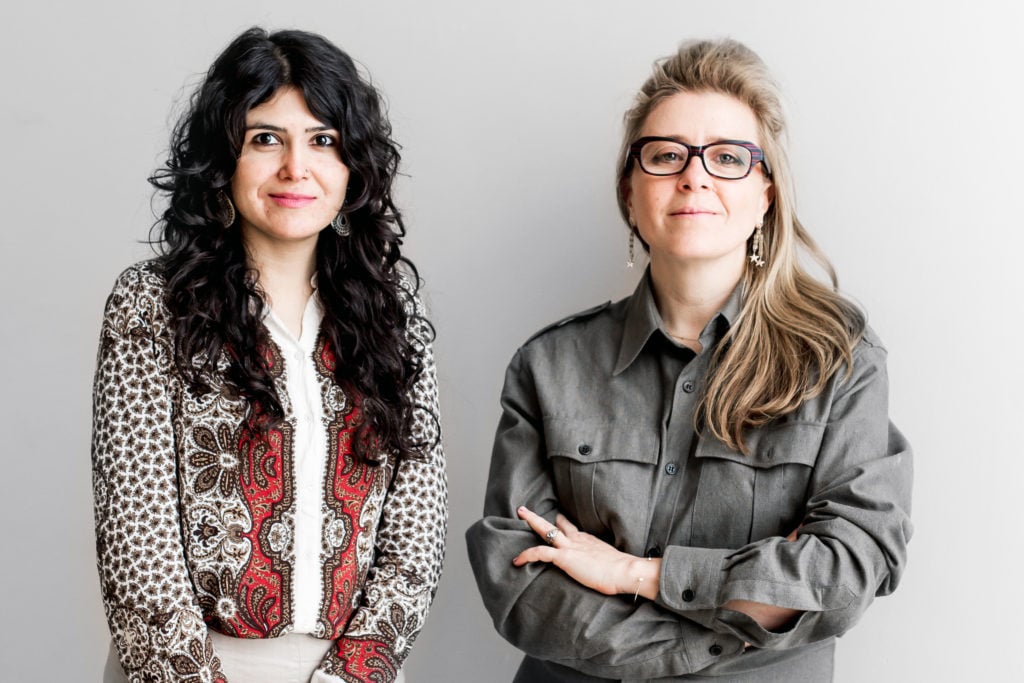Art World
South Korea’s Gwangju Biennale Has Been Postponed Until Next Year, Adding to the Crush of International Shows in 2021
The biennale moved from this fall until February 2021.

The biennale moved from this fall until February 2021.

Naomi Rea

After more than a year of planning, the organizers of the Gwangju Biennale in South Korea have announced that the 13th edition of the exhibition will be postponed from this fall until 2021. The news comes amid a slew of cancellations and postponements in the global biennial calendar, including the Lyon Biennale and the Liverpool Biennial.
The delay, or course, was due to “the global struggle with COVID-19,” organizers said in a statement, adding that they made the difficult decision to prioritize the safety of the artists and other participants. The exhibition is one of the most widely attended biennales in the world, posing a particular risk of spreading disease. There have also been numerous practical hurdles caused by the outbreak, including the production of new site-specific commissions, as well as logistical issues surrounding the transportation of artworks and international travel.
The biennale, which was originally scheduled to run September 4 to November 29, will now be held from February 26 through May 9 in 2021. The president of the Gwangju Biennale Foundation, Sunjung Kim, says in a statement that the foundation will work to address “the various challenges and variables that will arise in the production of this international art event that involves artists from around the world.”
While South Korea has been praised for its efforts to contain the pandemic, concerns that the country could be facing a second wave of the outbreak could complicate the new date.
This year’s biennale had been meant to coincide with the 40th anniversary of the bloody Democratic Uprising in Gwangju. Its artistic directors, curators Defne Ayas and Natasha Ginwala, had titled it “Minds Rising, Spirits Tuning,” and the exhibition planned to look at how the world has evolved alongside technology.
“Despite the optimism brought by the timely response to the pandemic in South Korea, some decisions have become inevitable, as we are experiencing many challenges surrounding the transportation of artworks and international travel,” Ayas and Ginwala tell Artnet News in a joint email.

Sangdon Kim, You and I, New Tribe (2017). Image courtesy of Gwangju Biennale.
Over the past couple of months, the curators have faced many challenges. With a team spread around the world from Sri Lanka to Italy, it has been difficult to adapt to Korean institutional bureaucracy and daily planning operations while working long-distance, they say. It has also been impossible for artists to conduct the necessary site-based research for new productions in Gwangju and the neighboring city of Jeju, which has stalled progress on three projects from international artists.
The curators say that they are still committed to seeing their site-responsive and historically conscious commissions for the biennale realized. “It remains crucial for us to learn directly from artistic experiences at this time—to observe with them how vulnerability, loneliness, narrative building, and imaginative leaps are reshaping our present lives in confinement and grief.”
In particular, they emphasize how their exhibition concept takes different forms of intelligence into view, which could prove useful in considering what sorts of civic models and practices of care will emerge in the aftermath of the virus. “Now, more than ever, the hierarchy of knowledge is being shaken as planetary forces compel a rethinking toward the ‘communal mind,’” the curators say. “The need for learning from the wisdoms of indigenous cultures, Shamanic practices, matriarchal models of society is growing more than ever.”
The pair also hold close in mind the memory of the Gwangju Uprising as a prism through which to understand the urgent questions that solidarity movements ask today. “We want to acknowledge and honor social justice movements around the world that have been impeded by COVID-19,” they say. “We know their spirit is very much alive.”
In the meantime, the curators are launching a bilingual online journal, Minds Rising, which will be published every two months. Laying out some of their research processes and artistic ideas, they hope the journal can serve as an “extended mind” of the biennale.